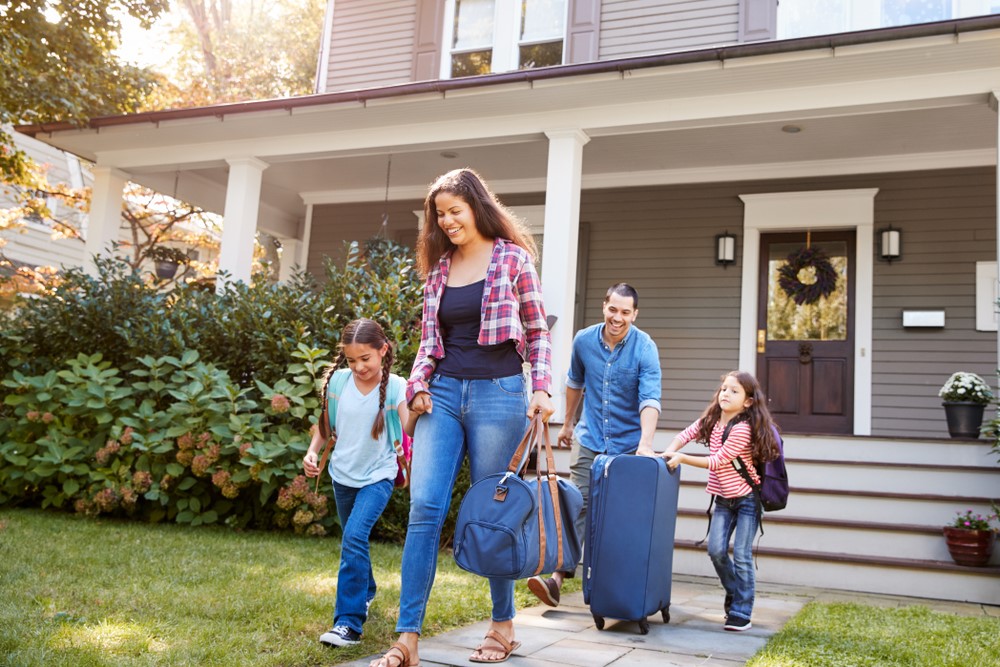How Does Home Insurance Work when I'm on Vacation?

How long can you leave your house vacant and unattended while on vacation? Most insurance policies have a time limit on property vacancy, usually around 30 days. It is important to notify your insurance provider if you plan to be away for an extended period.
If you leave your house empty or unattended for a long period, your house may be considered vacant or underused property and your existing home insurance might be voided.
How long to inform your insurer
While there is no strict rule regarding the exact duration for notifying your insurer before going on vacation, it is generally advisable to inform them at least two weeks in advance if you will be away for an extended period.
This allows sufficient time for any necessary adjustments to your policy and ensures that you are covered during your absence. Some insurers may require notification for vacations lasting longer than 30 days, so be sure to check your specific policy details and provincial requirements.
Why
Vacancy Clauses: Many home insurance policies have vacancy clauses, which specify the maximum number of consecutive days a property can be unoccupied. Exceeding this limit could void your coverage.
Increased Risk: Longer absences can increase the risk of theft, vandalism, or other damages, especially if your home appears unoccupied.
If you’re going on a vacation, don’t forget about travel insurance to protect yourself and your family.
Tips for keeping your home safe while traveling
- Secure all entry points: Ensure all doors and windows are locked before leaving. Consider installing deadbolts or security bars for added protection.
- Smart home devices: Use smart home devices to control lights, thermostats, and security systems remotely.
- Use timers for lights: Set timers on indoor lights to create the illusion of occupancy. This can deter potential burglars.
- Notify neighbours: Inform a trusted neighbour about your absence and ask them to keep an eye on your property. They can collect mail and packages, which helps prevent the appearance of an unoccupied home. Provide your neighbor with your contact information and the contact information of a trusted friend or family member.
- Install a security system: Consider investing in a home security system with cameras and alarms that can alert you or authorities in case of suspicious activity.
- Remove valuables from sight: Keep valuables out of view from windows and consider using a safe for important items.
- Stop mail delivery: Arrange for the postal service to hold your mail and stop newspaper deliveries to avoid giving the impression that no one is home.
- Check your insurance policy: Review your homeowner's insurance policy to understand coverage limits and requirements while you’re away.
- Unplug electronics: Unplug non-essential electronics to reduce fire risks and save energy while you're away.
- Consider a house sitter: Hire a trusted friend, family member, or professional house sitter to stay at your home while you're away.
- Turning off the water: If you're traveling during the winter and no one will be staying in your home, your insurer may ask you to turn it off and drain the water.
- Control Heating: Make sure you have the heat high enough to prevent pipes from freezing.
What’s the difference between a vacant home and an unoccupied home?
An unoccupied house refers to a property where no one is currently living, but the owner's personal belongings and furnishings remain inside. A home can be classified as unoccupied if the owner is temporarily away, such as on vacation, traveling for work, or hospitalized.
In contrast, a vacant home is one that is entirely empty, with no furniture or personal property inside. A home may be considered vacant if it is being sold, purchased as an investment, or intended for other non-residential purposes. Vacant homes are often considered riskier than occupied ones, as they may be more vulnerable to issues such as vandalism.
Whether you're on vacation, traveling for work, or simply taking a break, taking the right steps will help safeguard your home during your absence.



